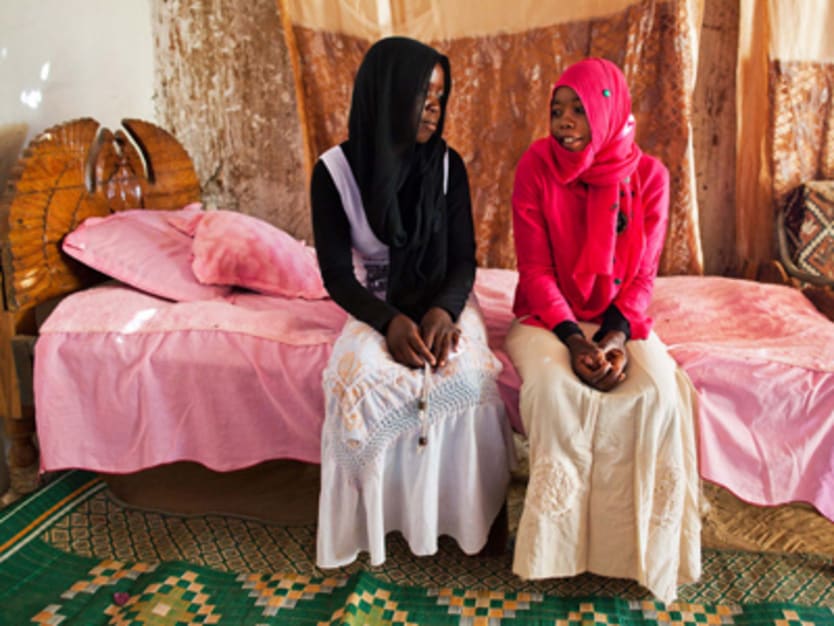
For those working in development whose projects involve behavioral change and ending traditional harmful practices, the issues are complex and the arguments are contested. For an issue like child marriage, the scale is often denied by national policymakers.
The issues are less complicated for girl brides however.
Ask a girl who has been forcibly married off aged 11 — to a man many times her age — if it is a culturally sensitive issue, and she is unlikely to agree. Given the chance to speak and be heard, she will likely tell you it is simply wrong.
The reality is that child marriage is a major barrier to development in many countries in the 21st century. Child marriage is prohibited by international human rights and many domestic national laws, yet continues to thrive on a staggering scale. It affects both girls and boys, but impacts girls in greater numbers and with more intensity.
One in 3 girls in the developing world will be married by their 18th birthday. If current trends continue, there will be 140 million girls married up to 2020. They will often be forced out of education and into a life of increased risk of violence, abuse, ill health or early death.
The consequences are dire not only for children, but also for communities and countries. Child marriage’s causes are complex, interrelated and dependent on circumstances and context. There are multiple push-pull factors, which mean child marriage is still so prevalent across the world.
Poverty pushes girls out of school and into early marriage. Yet, equally, girls are deliberately and consciously pulled from school to be married off — and subsequently into a cycle of poverty, which often repeats itself, generation to generation. We quickly find ourselves mired in a situation where it is difficult to unpick the real drivers behind this vast phenomenon that still sees 39,000 girls married off every day, robbed of their childhood, denied of their rights to education, health and security, and thrust into a life of illiteracy and few prospects.
Niger has one of the world’s highest incidences of early child marriage, with 36 percent of girls and 75 percent of boys married off before reaching the legal age of 15 and 18, respectively, according to a recent study.
Most child marriages are not registered and don’t have spousal consent. In rural areas, families sometimes enter into an agreement whereby a young girl (aged between 10 and 12 years old) joins her husband’s family under the guardianship of her mother-in-law. But the subject in this largely conservative Muslim society remains taboo.
For instance, 13-year-old Mariama, who almost fell victim to child marriage, used to cry all day, and could not sleep and eat through worry.
“I’ve been sad since the first day they told me that I wouldn’t go to school and that I am to get married,” she told us.
Her mother decided to marry her off reluctantly after being offered money.
But Mariama was lucky. She is in an area where we and partners can intervene and have dramatically cut the number of child brides. Soon, she’s back in school, made possible with the help of a local sultan and other traditional leaders who support aid groups’ efforts to eradicate child marriage.
“I highly value children’s education, in particular for young girls, who are the protectors of the family and, therefore by extension, of the village, the tribe, the whole community. A young girl is a future mother, a future educator and an excellent agent of development,” the sultan said.
Mariama and her mother Ramatou (who herself was wed at age 10) were relieved. Ramatou said of her experience: “When they took me to the man, I thought he was my dad.”
The fact that these traditional leaders who hold the reins in many communities are usually men is pertinent — and all the more significant when they willingly let go of such practices.
All these, however, are of scant comfort to Haoua, 15, who lives in the same district. She had her first child by her husband last year, suffering serious health complications that could blight her for life. The baby died.
“I was very frightened. I suffered a lot with the labor. I was in pain. With all that I’ve experienced with the labor, I don’t think I want to have children again,” she said. “Marriage isn’t a happy thing.”
This week, Plan takes the cause of child brides and grooms to have the right to say “I don’t” to the Human Rights Council in Geneva. Our report calls for urgent, concerted and integrated action at local, national and international levels. It will be the first step toward securing a U.N. resolution to eradicate this practice by 2015.
In all these processes, we must remind ourselves that the most important voices to be clearly heard are those of Mariama, Haoua and millions of other children. In that sense, it really IS straightforward.
Join the Devex community and access more in-depth analysis, breaking news and business advice — and a host of other services — on international development, humanitarian aid and global health.








